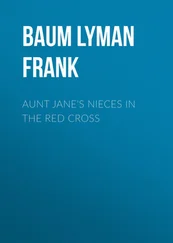John Schwartz - The Red Daughter
Здесь есть возможность читать онлайн «John Schwartz - The Red Daughter» весь текст электронной книги совершенно бесплатно (целиком полную версию без сокращений). В некоторых случаях можно слушать аудио, скачать через торрент в формате fb2 и присутствует краткое содержание. Город: New York, Год выпуска: 2019, ISBN: 2019, Издательство: Random House, Жанр: Историческая проза, на английском языке. Описание произведения, (предисловие) а так же отзывы посетителей доступны на портале библиотеки ЛибКат.
- Название:The Red Daughter
- Автор:
- Издательство:Random House
- Жанр:
- Год:2019
- Город:New York
- ISBN:978-1-40006-846-3
- Рейтинг книги:4 / 5. Голосов: 1
-
Избранное:Добавить в избранное
- Отзывы:
-
Ваша оценка:
- 80
- 1
- 2
- 3
- 4
- 5
The Red Daughter: краткое содержание, описание и аннотация
Предлагаем к чтению аннотацию, описание, краткое содержание или предисловие (зависит от того, что написал сам автор книги «The Red Daughter»). Если вы не нашли необходимую информацию о книге — напишите в комментариях, мы постараемся отыскать её.
The Red Daughter — читать онлайн бесплатно полную книгу (весь текст) целиком
Ниже представлен текст книги, разбитый по страницам. Система сохранения места последней прочитанной страницы, позволяет с удобством читать онлайн бесплатно книгу «The Red Daughter», без необходимости каждый раз заново искать на чём Вы остановились. Поставьте закладку, и сможете в любой момент перейти на страницу, на которой закончили чтение.
Интервал:
Закладка:
Within weeks of the vozhd’ s death, those multitudes who somehow had managed to survive the Gulag and the prisons began returning to the strange ruins of their existence. Some of them were walking ghosts, but not all.
It’s been said that Saint George’s Hall is painted with more gold than exists in certain countries. Perhaps. All I know is that the light that evening in 1953 at the Congress of Soviet Writers was radiant in a way I can’t recall seeing anywhere else before or since. As if the sun had entered the night, and the night had entered the hall. I had arrived only a few minutes before, had just excused myself from a conversation with a former professor of mine, when, walking past a group of garrulous, good-looking filmmakers—garrulousness, or the Soviet version of it, was then only just coming back, at least among writers and artists—I noticed the cluster of male bodies shift ever so slightly, revealing a face whose every line (deeper now, but topographically exact) was known to me.
Alexsei Kapler saw me too—I’m certain he did—and for a moment my insides shuddered at the prospect that he was about to ignore me. Instead, he stepped away from his coterie, walked directly over to where I stood, and, without a word of greeting, took my hand. Then he laughed. Heads all around turning to observe this sudden, unforeseen meeting: my hand in his, my face looking up into his, after all that had happened and not happened between us.
We leave Saint George’s Hall together, then the Kremlin, walking arm in arm to the little café on the far side of Sokolniki Park. The maître d’ with the sallow face and silver walrus mustaches (how in the name of Saint Peter did he manage to survive this long?) seats us at the precise table we occupied eleven years earlier. I know Lyusia is thinking the same thing because he murmurs, Remember old Klimov? and laughs again. It is his way, his remarkable ability, or agility, to laugh in the face of whatever is thrown at him. I remark as much, but he shakes his head. A silence follows, horrible to me, broken only by the waiter bringing vodka. This fellow wears a broken watch chain—just filigreed links dangling pointlessly from his vest pocket. I drink my vodka and confess to my former lover what is, now that I am with him again, my greatest fear.
I am afraid, Lyusia, that you hold me responsible for what… was done to you. I hope you understand that the only reason I never tried to write was that I assumed it would make your situation worse.
This time he does not laugh. He looks at me a long time. Rather than absolve me, he removes a hand-rolled cigarette from a dented tin case—a memento, obviously—and lights it. He offers it to me first, but I decline. He inhales deeply, the smoke entering and stirring him, darkening his eyes. The smoke alone—his scent, the scent of his hair and clothes—makes me nearly insane with longing.
Do you know what happened to me, Svetlana?
I shake my head.
They took me off the street . March the second. I was on my way into a film meeting. The car was a Packard—black, too clean—and sitting up front was none other than General Vlasik. You remember him: chief of your father’s personal security. Never far away, even in one’s sleep. When I saw him was when I began to have an inkling of what they were going to do to me. And then at Lubyanka, what an honor to have Deputy Minister Kabulov himself read out my arrest: “By Article Fifty-eight of our law…” The man was a terrible actor. Can you believe they accused me of being a British spy? Among many other made-up charges. Of course, the real reason was never spoken. I had crossed a personal line, I don’t deny it. And the fact that I’m a Jew… and your father… Well. I was allowed no possessions, no communications with my wife. Do you know how it is to make a film, Svetlana? On set, I mean. The people, actors, actresses, production designers. The community. The human community of it all. Where silence exists only in relation to the talk. In Lubyanka, you see, they kept me in isolation for a year. Nothing but silence. And to think that now I have outlived Vlasik, and Kabulov too. Well, as they say, life is just one long, very interesting movie, no?
He laughs, more quietly than before, and lights another cigarette.
After a year, without explanation he was put on a Black Crow prison truck and sent with other deviationists, Trotskyites, and terrorists to Vorkuta, one of the most brutal Gulags in the coal-mining area of Siberia. But Lyusia was not everyone; he was famous and charming, and lucky too, and he was named the camp’s official photographer. As a zazonniki, he was allowed to live and work outside the prison zone, where he joined a prisoners’ collective theater. One of the actresses he met there became his lover.
His sentence was five years. Upon his release, he was told he could travel anywhere he wanted except Moscow. His parents were in Kiev, so that’s where he decided to go. But first he stopped in Moscow to visit the woman who was still his wife. Though he had never been literally faithful to her, he loved her, and his love and his hubris in the face of danger were inextricably bound, they were what made him who he was. Any woman who’d ever loved him knew this. My father, who could smell weakness at the very point where it began to corrode iron, also knew this. Two days later, his plainclothes security men pulled Kapler off the train before it could leave Moscow station for Kiev.
Our waiter brings more vodka. Lyusia lights a third cigarette.
Following his second arrest, he tells me, he was sent directly to Inta, another Gulag in Siberian coal-mining territory. This time he had less luck, none, and only one thing allowed him to survive with his mind intact. The actress who’d been his lover in Vorkuta would come to see him, bringing food and tenderness. There was nothing else. (By then, his first wife had divorced him.) Another five years passed in this way. Then the vozhd died and Lyusia’s case was reviewed, by whom he never knew. One day he was summoned and told he’d been rehabilitated and could go home. A telephone was handed to him. One call . For the first time in ten years, he began to weep.
He returned to Moscow and married the actress who’d been so devoted to him, and they moved into the city flat which their marriage now entitled them to.
I’m going to Crimea on a photo assignment, he tells me now. My wife is staying behind. Why don’t you come?
The café will close soon. Our waiter with the broken watch chain leans against an unoccupied banquette, watching us out of the corner of his eye: he will have stories to tell, this one, oh yes. But Lyusia doesn’t give a damn. He has lived nine lives to my one. He is made of smoke and mirrors and more smoke. He opens his cigarette case and, finding it empty, gives a faint smile of unsurprise.
So you’ll come?
I have Josef with me. My son.
How old is he?
Nine.
Bring him. He will enjoy the sea.
Where would we stay?
With me, of course.
All right, Lyusia.
There is just one thing you need to understand.
What is it?
Whatever we have, whatever we do, I will never leave my wife.
I went on that trip, and one or two others. But Lyusia was as good as his word and remained married to his wife, the actress.
One winter night, I found myself in the bitter snow-dripping cold outside the theater where she was appearing in a play, I can’t remember what play it was, waiting for her to come out. There were only two of us there by the stage door: a few feet away from me stood a man in a trooper hat and faded military parka smoking a state cigarette beneath a lamp and a poster that said ANSWER THE CALL OF THE COMMUNIST PARTY. Was he there to spy on me? It crossed my mind. Or perhaps waiting for a different actress? Clouds of smoke rose from his face and mingled with the falling snow. After ten minutes of this, I could no longer feel my toes. Then the door opened and she emerged, bundled in her coat, her theatrical face under her shapka wiped clean of makeup as only a tired professional would do. She stopped when she recognized me, then turned her face away to show that she could not stand the sight of me.
Читать дальшеИнтервал:
Закладка:
Похожие книги на «The Red Daughter»
Представляем Вашему вниманию похожие книги на «The Red Daughter» списком для выбора. Мы отобрали схожую по названию и смыслу литературу в надежде предоставить читателям больше вариантов отыскать новые, интересные, ещё непрочитанные произведения.
Обсуждение, отзывы о книге «The Red Daughter» и просто собственные мнения читателей. Оставьте ваши комментарии, напишите, что Вы думаете о произведении, его смысле или главных героях. Укажите что конкретно понравилось, а что нет, и почему Вы так считаете.












